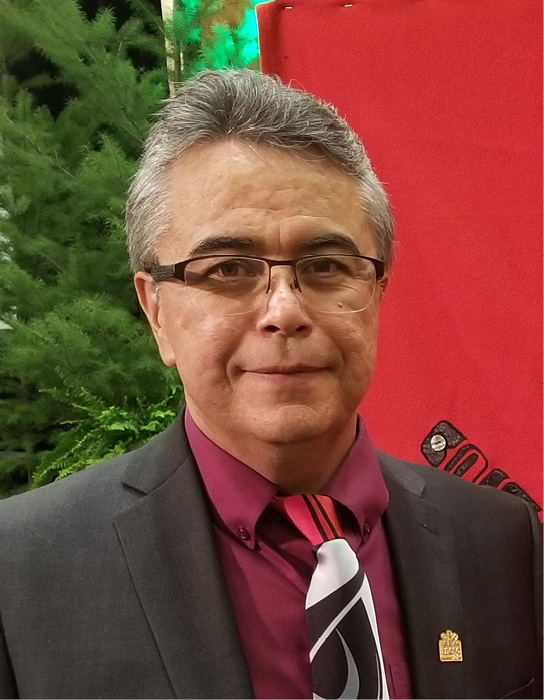2021–22 Annual Report of the Canada Energy Regulator
2021–22 Annual Report of the Canada Energy Regulator [PDF 1466 KB]
Copyright/Permission to Reproduce
ISSN 2563-3155

Table of Contents
- Message from the Chairperson
- Message from the Chief Executive Officer
- Message from the Indigenous Advisory Committee Chairperson
- CER Overview
- Canada Energy Regulator – A Clear Path Forward
- CER Pandemic Response
- IAC Progress to Date
- What the CER Regulates: Energy in Canada
- Core Responsibilities: What we achieved
- What the Future Holds
- Appendix A: Biographies
- Appendix B: Financial Overview
- Appendix C: Service Standards Results
- Appendix D: Regulations
- Appendix E: Audits
- Appendix F: Inspection Officer Orders Issued in 2021–22
- Appendix G: Warning Letters and Administrative Monetary Penalties
- Appendix H: Abbreviations and Definitions
Note: The 2021–22 Annual Report of the Canada Energy Regulator is one of two Annual Report documents that summarize the Canada Energy Regulator’s achievements of the past year. To learn more about the adjudicative work of the Canada Energy Regulator, please see the 2021–22 Annual Report of the Commission of the Canada Energy Regulator.
Message from the Chairperson
 The Canada Energy Regulator (CER) regulates federal infrastructure to ensure the safe and efficient delivery of energy to Canada and the world. It has been tasked to deliver an energy regulatory system that inspires trust and public confidence on the part of Canadians. The CER does this through robust communications, transparency, collaboration, and inclusive engagement.
The Canada Energy Regulator (CER) regulates federal infrastructure to ensure the safe and efficient delivery of energy to Canada and the world. It has been tasked to deliver an energy regulatory system that inspires trust and public confidence on the part of Canadians. The CER does this through robust communications, transparency, collaboration, and inclusive engagement.
The CER’s Board of Directors is responsible for governance of the Regulator and sets the strategic direction of the organization. The Board of Directors Annual Report for 2021–22 is an overview of the CER’s activities of the past year, which included the significant achievement of the Board’s approval of the CER’s first three-year Strategic Plan in April 2021.
The Strategic Plan benefited from the input of the CER's Commission and Indigenous Advisory Committee (IAC). This Plan outlines the CER’s bold mission and vision, and four interconnected strategic priorities; it is the CER’s blueprint for building a modern and more effective regulatory system founded on the legislation that established the CER – the Canadian Energy Regulator Act (CER Act). During 2021–22, the CER has effectively delivered on its mandate, with safety at the core, and made substantial progress on each of the new strategic priorities: Trust and Confidence; Reconciliation; Data and Digital Innovation; and Competitiveness.
The Board of Directors is particularly proud of the relationships built, and work to date, with the IAC. Established in August 2020, the IAC has a key focus: to advise the CER on building a renewed relationship with the Indigenous peoples of Canada. The IAC’s nine members are leaders at the local, regional, and national level, reflecting the diversity of First Nations, Métis Nation, and Inuit communities, languages, genders, geographies, and skills and expertise. Operating at a strategic level, the IAC works directly with the Board of Directors as an integral part of the CER’s governance structure. The advice of the IAC has had a profound impact on the Board, strengthening our own work and thinking as well as is making tangible impacts on the organization itself.
We were fortunate to welcome three new Directors to the Board in 2021. Karen Leibovici, Karim Mahmud, and François Tanguay, bring extensive experience and expertise to the CER and enhance the Board’s ability to provide effective, strategic oversight to the organization. I would also like to acknowledge the extraordinary contributions to the organization of Alain Jolicoeur, one of the initial Directors of the CER and previously a Member of the National Energy Board. Mr. Jolicoeur resigned from the CER’s Board of Directors in early 2022, and he will be truly missed.
In a year when Canadians continued to be challenged by the ongoing global pandemic, the Board commends the herculean efforts of the CER’s staff to remain agile, innovate and deliver results for Canadians.
On behalf of my Board of Directors colleagues, I respectfully submit the Canada Energy Regulator's 2021–22 Annual Report to the Honourable Jonathan Wilkinson, Minister of Natural Resources.
Original signed by
Cassie J. Doyle, Chairperson
Board of Directors of the Canada Energy Regulator
Message from the Chief Executive Officer
 The CER regulates infrastructure to ensure the safe and efficient delivery of energy to Canada and the world, protect the environment, recognize, and respect the rights of the Indigenous peoples of Canada, and provide timely and relevant energy information and analysis. Our staff accomplishes this through their robust safety and environmental oversight, support for our Commission’s adjudication processes, engaging meaningfully with Canadians and Indigenous peoples, and keeping Canadians informed of the constantly evolving energy information landscape.
The CER regulates infrastructure to ensure the safe and efficient delivery of energy to Canada and the world, protect the environment, recognize, and respect the rights of the Indigenous peoples of Canada, and provide timely and relevant energy information and analysis. Our staff accomplishes this through their robust safety and environmental oversight, support for our Commission’s adjudication processes, engaging meaningfully with Canadians and Indigenous peoples, and keeping Canadians informed of the constantly evolving energy information landscape.
As we deliver on our mandate, safety remains steadfastly at the core of what we do. With the COVID-19 pandemic continuing to impact the lives of Canadians this past year, that meant taking additional precautions both for our staff and the communities where our regulated infrastructure is present. We continued to successfully deliver virtual hearings and undertake comprehensive inspections. During the historic floods in British Columbia (BC), our staff were on the ground to ensure the facilities we regulate stayed safe.
In December 2021, the CER released Canada’s Energy 2050 (Canada’s Energy Future 2021 report), a report that has been informing the energy conversation at Canada’s boardroom tables and dinner tables. This report explores how new technologies and climate policies will impact Canadian energy consumption and production trends over the next 30 years. We are going even further with our next iteration. Our staff is hard at work expanding our analysis to include modeling consistent with Canada’s commitment to achieving net-zero emissions by 2050.
We have continued to make progress towards transforming the way we work with Indigenous peoples. We have invested significantly in enhancements to our approach to Crown consultation and accommodation and will continue to do so. Our work towards the implementation of the United Nations Declaration on the Rights of Indigenous Peoples (UN Declaration) within our mandate continues to evolve. With the advice of the IAC and working with the Indigenous Advisory and Monitoring Committees (IAMC) for the Line 3 and Trans Mountain Expansion Project (TMEP), we are building a new relationship with Indigenous peoples. Our work to recruit, retain and promote more Indigenous employees, including a bridging program for Indigenous Monitors, is also key to improving how we discharge our mandate while ensuring the respect for the rights of Indigenous peoples.
Over the past year, the CER launched a review of the Onshore Pipeline Regulations (OPR), our primary “rulebook” for onshore pipelines. We are conducting a comprehensive review to update the OPR, building on years of learnings and incorporating feedback received from Indigenous peoples, regulated companies, landowners, and other stakeholders. This significant effort will further modernize our regulatory framework.
Our organization has adapted and delivered strong results. We are fortunate to be supported by talented staff in data, finance, human resources, facilities, and all other areas of our internal operations, who provide the daily support to enable delivery of our regulatory mandate. Work has been ongoing to launch a Hybrid Workplace Pilot early in the new fiscal year, alongside significant efforts to modernize other aspects of our internal operations.
When I joined the CER, I shared my personal and professional commitment to diversity and inclusion with all staff. All Canadians should see themselves reflected at all levels of the public service. A diverse workforce will allow us to capitalize on broader perspectives and expertise to improve how we work as a regulator. This year, the CER delivered its Diversity and Belonging Roadmap to help address issues of discrimination and inequitable workplace experiences. This Roadmap outlines the tangible actions we are taking and the further actions required to get us where we need to be, and I am confident that we will continue on the right path together.
I would like to thank every member of the CER team for their hard work and commitment over the past year, the Board for its strategic direction and oversight, and the IAC for its transformative advice. The CER is working daily to be a regulator that holds the trust and confidence of Canadians. We are evolving to meet the changing needs of Canadians and the energy system, while holding those we regulate to the highest standards of safety, and the protection of rights and the environment. While I am incredibly proud of all that the CER achieved in 2021–22, I am more excited for what we will achieve together in the coming year.
Original signed by
Gitane De Silva
Chief Executive Officer
Canada Energy Regulator
Message from the Indigenous Advisory Committee Chairperson
 It is an honour to Chair the CER’s Indigenous Advisory Committee (IAC). The IAC operates at a strategic level, working directly with the CER’s Board of Directors (Board) as an integral part of the CER’s governance structure and advising the CER on how it can build a new relationship with Indigenous peoples.
It is an honour to Chair the CER’s Indigenous Advisory Committee (IAC). The IAC operates at a strategic level, working directly with the CER’s Board of Directors (Board) as an integral part of the CER’s governance structure and advising the CER on how it can build a new relationship with Indigenous peoples.
A significant part of our early work has been establishing the right foundation: building strong relationships between the IAC, Board and CER leadership, and the foundation for the IAC, which reflects governance best practices and Indigenous guiding principles.
The IAC and Board had earlier co-endorsed the IAC’s founding Terms of Reference and this year, co-endorsed an ambitious three-year IAC work plan that identifies five work priorities for 2021–2024: relationships and governance; the UN Declaration; cultural competency and change management; Indigenous peoples’ involvement in regulatory oversight; and Crown consultation and accommodation.
In March 2022, the first annual IAC Progress and Impact Report (IAC Report) was published. It describes where and how the IAC is impacting the work of the CER and charts progress against the IAC’s work plan. A particular highlight for me is the work of the IAC and the Board on implementing the UN Declaration within the CER’s mandate. This is at an early stage and will be a multiyear effort, but collectively we have begun, with support from CER staff, to co-develop a CER Statement on Reconciliation that will discuss how specific articles of the UN Declaration intersect with the CER’s mandate.
The IAC’s advice has resulted in a CER Strategic Plan that includes clear commitments and concrete initiatives to build strong and respectful relationships with Indigenous peoples. Tangible impacts in the day- to-day operations of the CER are also beginning to happen because of the IAC’s advice. For example, the IAC’s advice has directly influenced the CER’s Crown consultation and accommodation approach, and the engagement process for the recently initiated, comprehensive review of the Onshore Pipeline Regulations (OPR).
The CER and the IAC are just getting started. More work is required to ensure the CER effectively implements the advice received by the IAC to bring about the systemic and transformational change required to fundamentally alter and improve how it carries out its mandate. We are learning from each other; finding ways to integrate Indigenous perspectives and worldviews into the oversight of CER-regulated energy infrastructure, throughout the lifecycle.
With earnestness and humility, I look forward with anticipation to all that we will accomplish ahead – together.
Original signed by
Tribal Chief Tyrone McNeil
Chairperson
Indigenous Advisory Committee
- Date modified:
